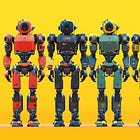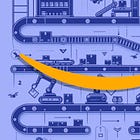Machine learning wins two Nobel Prizes - Sync #488
I hope you enjoy this free post. If you do, please like ❤️ or share it, for example by forwarding this email to a friend or colleague. Writing this post took around eight hours to write. Liking or sharing it takes less than eight seconds and makes a huge difference. Thank you! Machine learning wins two Nobel Prizes - Sync #488Plus: Tesla reveals Cybercab; Meta Movie Gen; Nobel Prize for microRNA; how a racist deepfake divided a community; how the semiconductor industry actually works; and more!Hello and welcome to Sync #488! It’s been a big week for AI community as AI researchers were awarded with not one but two Nobel Prizes—one in physics and one in chemistry. In other news, Tesla revealed Cybercab—the long-awaited robotaxi, and Robovan—their new vehicle, both to mixed reception. Meanwhile, Meta has unveiled Meta Movie Gen, their AI-powered video generator, and Amazon announced new warehouses that will employ 10 times as many robots. Elsewhere in AI, Microsoft doubles down on ever-present AI assistants, and AMD launches an AI chip to rival Nvidia. We’ll also explore the damage caused by a racist AI deepfake that fooled a community. We’ll finish this week’s issue with the Nobel Prize in Medicine for the discovery of microRNA and a conversation on how the semiconductor industry actually works. Enjoy! Machine learning wins two Nobel PrizesOver the past 10 years, machine learning and AI have been making a greater and greater impact on our lives. During this time, researchers have published breakthrough results one after another, from enabling computers to recognise images, sometimes better than humans, to modern large language models transforming how we work and interact with computers. Over these 10 years, virtually every field of human activity, from healthcare and medical research to education, engineering, business, and entertainment, has in one way or another been transformed by machine learning and AI. The Royal Swedish Academy of Sciences acknowledged the impact machine learning and AI have had in recent years by awarding not one but two Nobel Prizes to researchers whose work has left a massive impact not only on AI research but also on the lives of millions of people. John J. Hopfield and Geoffrey E. Hinton win Nobel Prize in Physics 2024The Royal Swedish Academy of Sciences awarded the 2024 Nobel Prize in Physics 2024 to John J. Hopfield and Geoffrey E. Hinton for their “foundational discoveries and inventions that enable machine learning with artificial neural networks.” Hilton said at the press conference with the University of Toronto, where he is professor emeritus, that this award should be seen as a recognition for a large community of people who have been working for years on machine learning and neural networks. After seeing this announcement, some might ask why these two researchers, best known for their work in artificial intelligence, won the Nobel Prize in Physics. However, if you look closer at computing, you'll notice many parallels between computing and physics. Information theory, the backbone of computer science, is essentially based on thermodynamics. Even though both laureates work on neural networks, they borrowed many concepts from physics, math, and neuroscience to achieve their breakthrough discoveries. The Royal Swedish Academy of Sciences awarded John Hopfield for the invention of a neural network known as Hopfield network. Hopfield network a type of recurrent neural network designed to save and recreate patterns, such as images. Inspired by the physics of atomic spin systems, where each atom acts like a tiny magnet, the network adjusts the connections between its nodes (representing pixels) so that saved patterns correspond to these low-energy configurations. Geoffrey Hinton received the Nobel Prize for his work on using the Hopfield network as the foundation for developing the Boltzmann machine, a type of neural network that can learn to recognize and generate patterns in data. His work incorporates tools from statistical physics, and the Boltzmann machine has applications in image classification and pattern generation. However, Hinton’s impact on machine learning goes well beyond his work on Boltzman machines. Together with his colleagues, David E. Rumelhart and Ronald J. Williams, Geoffrey Hinton invented the backpropagation algorithm in 1986. Backpropagation is the cornerstone of modern artificial neural networks. It is the algorithm that allows neural networks to adjust their weights and learn from the mistakes made during the training process. Backpropagation is one of the most important algorithms that every practitioner of machine learning and AI must master. 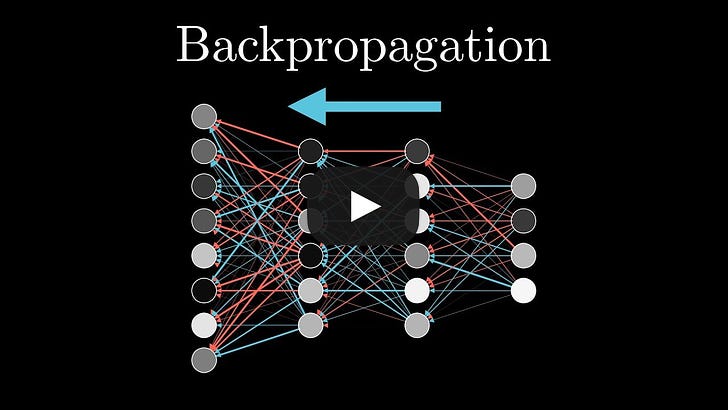 Hinton's other major contribution to the field was the 2012 paper ImageNet Classification with Deep Convolutional Neural Networks, co-written with Alex Krizhevsky and Ilya Sutskever, the future co-founder and chief scientist at OpenAI. That paper proved that deep neural networks can be highly effective in image recognition and demonstrated how using GPUs could significantly improve their performance. It is one of the most important papers in computer science and essentially kickstarted the deep learning revolution of the 2010s. Hinton then joined Google Brain, where he continued his research, exploring and developing cutting-edge neural network architectures and algorithms, contributing to advancements in areas such as image recognition, natural language processing, and other AI applications. For his work on neural networks and deep learning, Geoffrey Hinton gained widespread respect in the community and earned the title "Godfather of AI." In 2018, alongside Yann LeCun and Yoshua Bengio, two other "Godfathers of AI," Hinton received the Turing Award, often referred to as the "Nobel Prize of Computing." In 2023, Hinton left Google and began advocating for taking AI safety seriously, becoming one of the most prominent voices calling for increased research into AI safety. In a press conference hosted by the University of Toronto, Hinton even mentioned that he is proud of the fact that one of his students fired Sam Altman. That student was Ilya Sutskever, who led an unsuccessful coup against Altman nearly a year ago. David Baker, Demis Hassabis and John M. Jumper win Nobel Prize in Chemistry 2024The second Nobel Prize for AI was awarded to Demis Hassabis and John Jumper for the creation of AlphaFold2, the AI model that solved the protein folding problem. They shared the prize with David Baker, who used computational protein design to deepen our understanding of protein prediction and design, enabling the creation of novel proteins to address some of the greatest challenges in medicine, technology, and sustainability. Baker received half of the prize, while Hassabis and Jumper jointly received the other half. For 50 years, researchers tried to solve the protein folding problem—predicting a protein's three-dimensional structure based solely on its DNA sequence. In 2020, researchers at DeepMind announced that this grand challenge in biology had been solved with AlphaFold. Two years later, DeepMind used AlphaFold2 to predict the structures of over 200 million proteins known to humanity and made them freely available for everyone to use through the AlphaFold Protein Structure Database. AlphaFold is a massive breakthrough in computational biology. It is already being used by many companies and research labs to discover new drugs more cheaply and quickly than before. More advanced tools, built on top of AlphaFold and similar models, could be applied not only in healthcare and pharmaceuticals but also in other fields and industries, helping to solve challenges from waste pollution to the creation of new materials. What we are witnessing now could be just the beginning of a massive transformation in biomedical research and bioengineering. Although the he Royal Swedish Academy of Sciences awarded the Nobel Prize to Demis Hassabis and John Jumper, it is better to see it as a acknowledgment for the work done by the entire team behind AlphaFold and for DeepMind as a whole. The Nobel Prize can be only awarded to individuals, not organisations, hence why it was awarded to Hassabis, the co-founder and CEO of DeepMind, and John Jumper, the director at DeepMind and lead author of the paper that introduced AlphaFold. However, next to Hassabis’ and Jumper’s names, there are 32 other names as authors of that paper and very likely more people at DeepMind contributed to the project. What do this year’s Nobel Prizes mean for AI and science?This year’s Nobel Prizes for AI raise two questions. Firstly, these awards open the possibility for more breakthrough achievements in AI to receive a Nobel Prize. Could the people behind the invention of the transformer model, which is the basis of modern large language models? How about the diffusion models, which power text-to-image generators, or any future breakthrough machine learning methods, be considered as potential Nobel Prize laureates? The second question concerns the impact of AI in science. There is no doubt AI will play an increasingly significant role in future discoveries. The scale of problems scientists are facing today means they can do very little without powerful machine learning algorithms to help find patterns and answers in the enormous amounts of data points they must deal with. Because of this, I’m confident we will see more researchers receiving Nobel Prizes, either for creating a breakthrough AI model or for heavily relying on one in their research. Now, with more powerful AI models becoming better at reasoning, there are discussions about creating AI scientists—AI models that can independently research a problem and propose solutions to it. Proponents of AI scientists envision a future in which such models will first augment the work of scientists, acting like research assistants and helping to find solutions to significant problems and challenges. However, there may come a point when these AI scientists advance from research assistants to becoming better than humans at solving the major issues facing humanity. If (or when) such an AI scientist is created and causes a breakthrough in science, it would raise questions about the role of human scientists in advancing our understanding of the world. Would the Royal Swedish Academy of Sciences award a Nobel Prize to an AI, rather than to the people who used or built that AI? One thing is for sure—AI is transforming how science is done, and we can expect more breakthrough results achieved with the help of artificial minds that will transform our lives. If you enjoy this post, please click the ❤️ button or share it. Do you like my work? Consider becoming a paying subscriber to support it For those who prefer to make a one-off donation, you can 'buy me a coffee' via Ko-fi. Every coffee bought is a generous support towards the work put into this newsletter. Your support, in any form, is deeply appreciated and goes a long way in keeping this newsletter alive and thriving. 🔮 Future visions▶️ The Day AI No Longer Needs Us (11:45) 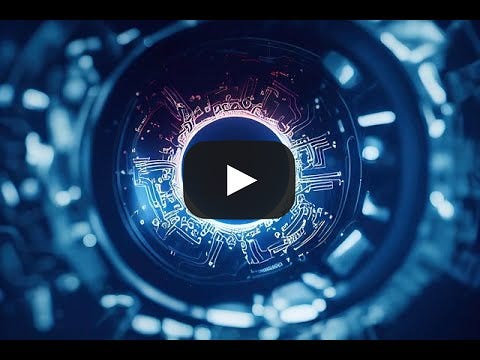 John Michael Godier feels spooky this time of year and paints a picture of a not-so-distant future where machines are capable enough to take over human tasks. Godier envisions fully automated factories and entire industries, autonomous flying drones that can recharge themselves using power lines, beyond human control and unable to be "unplugged," and self-improving AIs that is beyond human comprehension. He also addresses the economic and societal risks of widespread automation, such as unemployment and the potential collapse of industries when too few consumers remain. Ultimately, the video touches on existential risks related to AI, including the fear that AI may surpass human intelligence and independence, making humans obsolete or irrelevant. And as Godier suggests, this could happen within this century. 🧠 Artificial IntelligenceMeta Movie Gen Microsoft: 'ever present' AI assistants are coming The racist AI deepfake that fooled and divided a community AMD launches AI chip to rival Nvidia’s Blackwell China Urges Local Companies to Stay Away From Nvidia’s Chips The Open Source AI Definition RC1 is available for comments We’ve entered the AI grift era Can Agents Spontaneously Form a Society? Introducing a Novel Architecture for Generative Multi-Agents to Elicit Social Emergence If you're enjoying the insights and perspectives shared in the Humanity Redefined newsletter, why not spread the word? 🤖 RoboticsTesla's Cybercab Is Here Inside 1x’s plan to test humanoids in homes Sidewalk robots are teaming with drones for Dallas food deliveries Amazon’s new warehouses will employ 10x as many robots ▶️ Agile perching maneuvers in birds and morphing-wing drones (2:19) 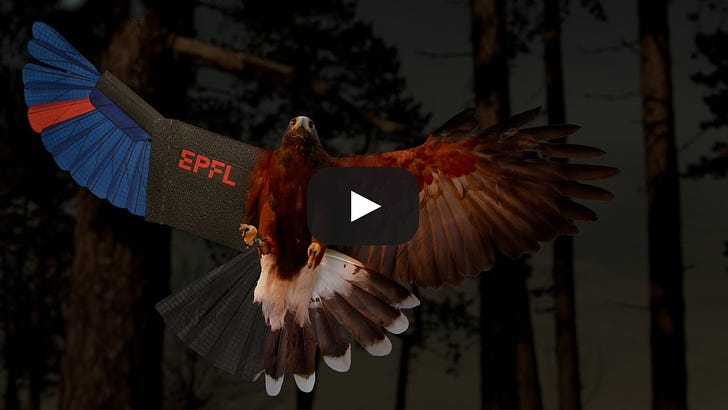 In this video, robotics researchers share the results of their work to better understand how avian perching manoeuvres work by first simulating and then building a bird-like drone that can morph its wings like a real bird. Their study not only helped us better understand the mechanics of birds' flight but also showed that drones can be used to study birds' flight and perform experiments that would be considered unethical if a real animal were used. 🧬 BiotechnologyNobel Prize in Medicine for the discovery of microRNA World-first therapy using donor cells sends autoimmune diseases into remission Global effort to map the human brain releases first data Human Stem Cells Repair Retinas in Monkey Models of Macular Holes 💡Tangents▶️ How the Semiconductor Industry Actually Works (2:10:53) 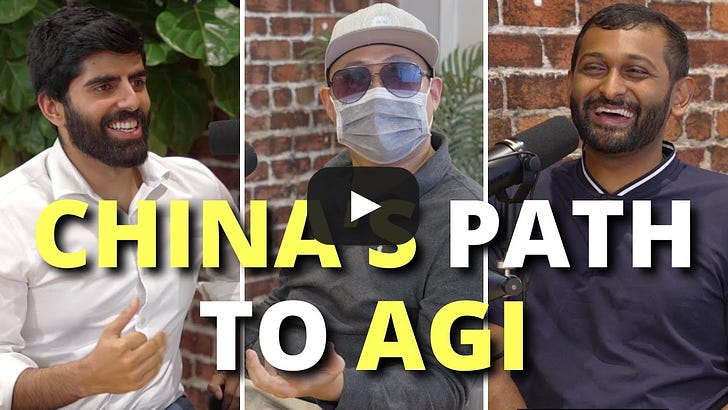 In this podcast, Dwarkesh Patel speaks with Dylan Patel from SemiAnalysis and Jon from Asianometry about the mindblowingly complex nature of semiconductors, different ways China could catch up to and even outcompete the US in AI, the datacenter boom, and behind-the-scenes stories of the semiconductor industry. The conversation spans over two hours and is equally insightful, intense, and entertaining, and I highly recommend listening to it. Thanks for reading. If you enjoyed this post, please click the ❤️ button or share it. Humanity Redefined sheds light on the bleeding edge of technology and how advancements in AI, robotics, and biotech can usher in abundance, expand humanity's horizons, and redefine what it means to be human. A big thank you to my paid subscribers, to my Patrons: whmr, Florian, dux, Eric, Preppikoma and Andrew, and to everyone who supports my work on Ko-Fi. Thank you for the support! My DMs are open to all subscribers. Feel free to drop me a message, share feedback, or just say "hi!" |
Older messages
OpenAI raises over $6.6 billion - Sync #487
Sunday, October 6, 2024
Plus: SB 1047 has been vetoed; a new humanoid robot has been revealed; the dark side of AI voice cloning; a new episode in the fight over the CRISPR patent; and more! ͏ ͏ ͏ ͏ ͏ ͏ ͏ ͏ ͏ ͏ ͏ ͏ ͏ ͏ ͏ ͏ ͏
Meta's new empire: VR, AR and AI - Sync #486
Saturday, September 28, 2024
Plus: Mira Murati leaves OpenAI; Microsoft to revive a nuclear plant for its AI data centre; bioengineered trees that capture more carbon; stem cell therapy for diabetes; and more! ͏ ͏ ͏ ͏ ͏ ͏ ͏ ͏ ͏ ͏
From Oil to AI: The Middle East's Rise as a New AI and Tech Hub - Sync #485
Sunday, September 22, 2024
Plus: Google to flag AI-generated images; new AI laws in California; Cruise is back in Bay Area; drones to fly between hospitals in London; 23andMe independent board directors resigns; and more! ͏ ͏ ͏
From Oil to AI: The Middle East's Rise as a New AI and Tech Hub - Sync #485
Sunday, September 22, 2024
Plus: Google to flag AI-generated images; new AI laws in California; Cruise is back in Bay Area; drones to fly between hospitals in London; 23andMe independent board directors resigns; and more! ͏ ͏ ͏
OpenAI Eyes a $150 Billion Valuation - Sync #484
Sunday, September 15, 2024
Plus: 60 countries endorsed a “blueprint” for military AI; Reflection 70B drama; "cyborg worms" controlled by AI; the feasibility of data centres in space; and more! ͏ ͏ ͏ ͏ ͏ ͏ ͏ ͏ ͏ ͏ ͏ ͏ ͏
You Might Also Like
Daily Coding Problem: Problem #1707 [Medium]
Monday, March 3, 2025
Daily Coding Problem Good morning! Here's your coding interview problem for today. This problem was asked by Facebook. In chess, the Elo rating system is used to calculate player strengths based on
Simplification Takes Courage & Perplexity introduces Comet
Monday, March 3, 2025
Elicit raises $22M Series A, Perplexity is working on an AI-powered browser, developing taste, and more in this week's issue of Creativerly. Creativerly Simplification Takes Courage &
Mapped | Which Countries Are Perceived as the Most Corrupt? 🌎
Monday, March 3, 2025
In this map, we visualize the Corruption Perceptions Index Score for countries around the world. View Online | Subscribe | Download Our App Presented by: Stay current on the latest money news that
The new tablet to beat
Monday, March 3, 2025
5 top MWC products; iPhone 16e hands-on📱; Solar-powered laptop -- ZDNET ZDNET Tech Today - US March 3, 2025 TCL Nxtpaper 11 tablet at CES The tablet that replaced my Kindle and iPad is finally getting
Import AI 402: Why NVIDIA beats AMD: vending machines vs superintelligence; harder BIG-Bench
Monday, March 3, 2025
What will machines name their first discoveries? ͏ ͏ ͏ ͏ ͏ ͏ ͏ ͏ ͏ ͏ ͏ ͏ ͏ ͏ ͏ ͏ ͏ ͏ ͏ ͏ ͏ ͏ ͏ ͏ ͏ ͏ ͏ ͏ ͏ ͏ ͏ ͏ ͏ ͏ ͏ ͏ ͏ ͏ ͏ ͏ ͏ ͏ ͏ ͏ ͏ ͏ ͏ ͏ ͏ ͏ ͏ ͏ ͏ ͏ ͏ ͏ ͏ ͏ ͏ ͏ ͏ ͏ ͏ ͏ ͏ ͏ ͏ ͏ ͏ ͏ ͏ ͏ ͏ ͏ ͏ ͏
GCP Newsletter #440
Monday, March 3, 2025
Welcome to issue #440 March 3rd, 2025 News LLM Official Blog Vertex AI Evaluate gen AI models with Vertex AI evaluation service and LLM comparator - Vertex AI evaluation service and LLM Comparator are
Apple Should Swap Out Siri with ChatGPT
Monday, March 3, 2025
Not forever, but for now. Until a new, better Siri is actually ready to roll — which may be *years* away... Apple Should Swap Out Siri with ChatGPT Not forever, but for now. Until a new, better Siri is
⚡ THN Weekly Recap: Alerts on Zero-Day Exploits, AI Breaches, and Crypto Heists
Monday, March 3, 2025
Get exclusive insights on cyber attacks—including expert analysis on zero-day exploits, AI breaches, and crypto hacks—in our free newsletter. ͏ ͏ ͏ ͏ ͏ ͏ ͏ ͏ ͏ ͏ ͏ ͏ ͏ ͏ ͏
⚙️ AI price war
Monday, March 3, 2025
Plus: The reality of LLM 'research'
Post from Syncfusion Blogs on 03/03/2025
Monday, March 3, 2025
New blogs from Syncfusion ® AI-Driven Natural Language Filtering in WPF DataGrid for Smarter Data Processing By Susmitha Sundar This blog explains how to add AI-driven natural language filtering in the



